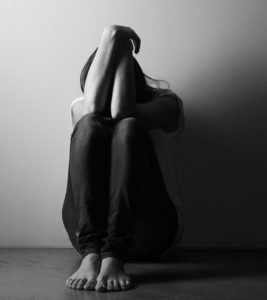
Picture source: hacerfamilia.com
Adolescent and young adults these days are facing numerous challenges while growing up in today’s fast paced world. The transition from being a carefree teenager to adulthood can be exciting or stressful at the same time. Some are fighting to survive and battling the consequences of war, human rights violation and violence at home, school and communities . All these adverse childhood experiences (ACEs) can cause long lasting psychological effect on children and adolescents. Of late there are many distressing and sad stories involving our children, which makes one think whether as a society have we failed our young people?
More and more young people are resorting to substance abuse and suicidal behaviour (ideation, plan, attempt) to cope with their difficulties. Malaysia’s National Health Morbidity Survey 2017 reported that 1:5 of our teenagers are depressed and 1:10 are stressed. As many as 10% of our teenagers have suicidal plans and 6.9% has attempted suicide. What is more disturbing, 1 in 25 teenagers in Malaysia claimed to have used illicit substances and 3.4% are current drug users. Those with ACEs are at higher risk of mental and substance disorder as older adults. Furthermore, youths with gender dysphoria are facing persecution from society making them feel unsafe and alone. Sadly, mental health remains a taboo topic in our society it is not discussed freely in families or taught in schools. This is worrying because serious mental illness can surface at a young age too. As such most cases of mental illness go undetected and untreated.

Picture source: StyleCraze
Apart from that, youths are also expected to conform to societal norms and overcome their issues independently. How are they able to do so when they do not have a safe and enriching environment? How can they be resilient and persevere in the face of adversities? Are we educating youths and protecting them as we should? What would happen to our younger generation if adverse childhood events continue and disrupt their childhood? Would they know where to get help or how to get it? In recent years there is increasing awareness and recognition of the need to build resilience. Resilience is the ability of an individual to cope with stress and adversity or ‘bouncing back ‘ from difficult experiences.
Among the ways to develop resilience is to accept that change is part of living, to build good relationships with others including adults and peers, help build their independence; learn to identify, express and manage their emotions and lastly build their confidence by taking on personal challenges . Resilience is important for young people’s mental health as the greater the resilience the more stronger they will be and better manage stressful life events. Young people with good mental health means they are able to make a contribution to society and be more productive.

Picture source: Learn Mandarin Now
Prevention is always better than cure, it begins with being aware about mental health illness and the early signs and symptoms of mental illness. Everyone has a role to play parents, teachers, communities, health care professionals – teach them necessary life skills to continue living , provide psychosocial support whether in communities or in health care setting, encourage more investment in welfare and health of adolescents and young people. Programmes targeted to raise awareness about mental health, methods to look after mental health, how to help and where to seek help should be held for young people.
In keeping with this year’s World Mental Health theme “Young People & Mental Health in a changing world” I would urge parents and communities to play a more active role in our children’s lives to protect and nurture them as we should. On 10th October every year educational events would be held across Malaysia to celebrate World Mental Health Day. In order to push the mental health agenda for the young people, Hospital Selayang is organising awareness event on 14/10/2018 to start the discussion and awareness about mental health among young people. Let us open our mind and hearts for our children.
“Children must be taught how to think ,not what to think “ Margaret Mead
Dr Nazariah Aiza Harun is a Psychiatrist and currently a Trainee in Child & Adolescent Psychiatry based in a government hospital. She is a member of Malaysia Psychiatric Association, Malaysia Child & Adolescent Psychiatry Association and Malaysian Advocates for Child Health.
[This article belongs to The Malaysian Medical Gazette. Any republication (online or offline) without written permission from The Malaysian Medical Gazette is prohibited.]
